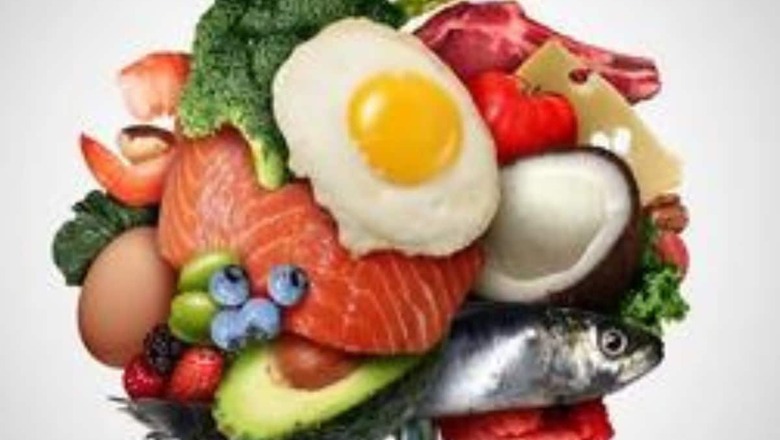
views
Protein is an essential nutrient that plays a crucial role in maintaining a healthy body. It helps in building and repairing tissues, promoting muscle growth, and regulating hormones and enzymes. While the recommended daily intake of protein for women may vary based on factors such as age, activity level, and overall health, there are general guidelines that can help women determine how much protein they should consume in their daily diet.
Dr Diti Makhija, Director, QMS MAS “Proteins are also known as body builders – they give our body strength, help build muscle mass, improve our immunity, provide energy to our body, promotes healthy hair and skin, hormonal functions, appetite regulation and maintain a fit and healthy body. They form a very important part of our diet.”
The World Health Organisation recommends 46g grams of protein per day for females aged 14 years and above.
Shikha Dwivedi, Dietitian and Nutritionist, OZiva, says, “Protein is an essential component of every well-balanced diet. However, there are significantly different views on how much protein women require. It can vary depending on factors such as age, muscle mass, activity level, and overall health.”
In general, the recommended daily protein intake for adult women is around 0.8 grams per kilogram of body weight. For example, a 60 kg woman would require approximately 48 grams of protein per day. “However, this is a minimum recommendation and may not be sufficient for those who are more physically active, pregnant or breastfeeding, or recovering from an injury. Hence, it should be balanced with other nutrients in a healthy diet or by taking clean supplements after consulting the doctor,” adds Dwivedi.
What happens if you are consuming less protein?
If you consume less protein, you will experience weakness, fatigue, muscle loss, unhealthy skin, hair loss and poor immunity. “Daily protein intake of female depends on their overall health, level of activity and age. Pregnant women and lactating women naturally have increased need for protein. Pregnant women in 2nd trimester require – 55.5 grams /day 3rd trimester – 68g/d,” adds Dr Makhija.
Getting the right amount of protein can be achieved in many ways –Yogurt for breakfast, eggs for breakfast, Paneer, Tofu, chicken salad, fish, peanut or butter toast, brown rice for dinner.
“Everyone – vegan / non -vegetarian / vegetarian can get enough protein by eating different kinds of foods. They are found in variety of food like eggs, dairy, seafood, legumes meats, nuts, and seeds. A very important source of protein is soy food – richest source of protein containing 35% protein,” opines Dr Makhija.
Why is protein intake important for women?
It’s important to note that getting enough protein is important for maintaining muscle mass, supporting immune function, and promoting satiety. However, consuming excessive amounts of protein can also be detrimental to health, particularly if it’s coming from sources that are high in saturated fat.
“Protein-rich foods are generally lower in saturated fat and higher in fiber which can help reduce the risk of chronic diseases such as heart disease, type 2 diabetes, and certain types of cancer. It comes in many forms, including beans, lentils, nuts, seeds, and whole grains, providing a wide variety of nutrients and flavours,” states Dwivedi.
There are other numerous sources of protein available however, clean and certified proteins are an excellent source of nutrition for a variety of reasons. “Women can go for certified clean protein powders as they are easy, convenient, and readily available to help meet an individual’s daily protein requirements without any hassle. As every woman has unique goals, physiology, and preferences, they must choose the suitable protein powder that suits their body type, workout regime and provides various benefits such as better hormonal balance, weight management, improved metabolism, hair and skin health,” signs off Dwivedi.
Read all the Latest Lifestyle News here




















Comments
0 comment